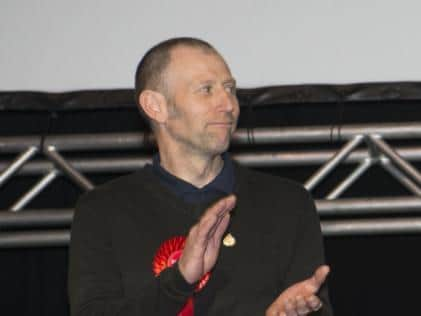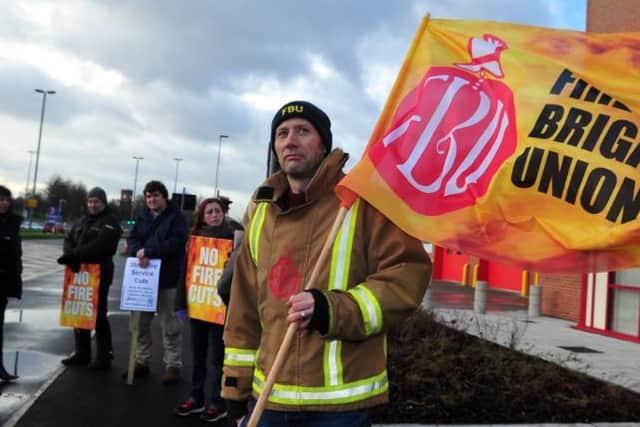Leeds councillor quits Labour over ‘institutionalised bullying’, and calls for committee governance system
and live on Freeview channel 276
In an explosive statement, Coun Drinkwater accused the current system of council governance as being a form of “institutionalised bullying”, adding that individual members’ concerns were not listened to during the ruling Labour group’s decision-making process.
He went on to call for a committee system of council governance, similar to that which has been voted for in Sheffield, which would see members from all elected groups represented on the council’s decision-making boards.
Advertisement
Hide AdAdvertisement
Hide AdCoun Drinkwater’s resignation from the party now makes him an independent councillor, while Labour’s overall majority on the council has reduced to just four.


His statement read: “I have just resigned from the Labour party for the reasons below.
“I can not continue to be complicit in the illusion of local government democracy in Leeds As a ward councillor I have very little influence on the politics of Leeds City Council despite being a member of the controlling group.
“The council is run on an ‘executive’ or ‘strong leader and cabinet’ model. This means that the leader who is elected by the controlling group members appoints executive councillors to run sections of the council ‘portfolios’.
Advertisement
Hide AdAdvertisement
Hide Ad“The leader also appoints the vast majority of councillors’ positions which attract ‘additional responsibility allowances’. These enhancements are significant.”


He added that a councillor with no extra allowances is paid £15,228.91 a year, whereas an appointed executive board member is paid more than double that, while other levels of allowances are also available for committee roles – he claimed such allowances create a “culture of patronage” to the leader.
Coun Drinkwater added: “As the former chair of the Fire Brigades Union in West Yorkshire I expected the Labour Group to operate in a similar bottom up way taking its direction from the Labour Party members and citizens of Leeds through its councillors.
“I expected significant decisions to come to Labour group for proper debate, for options to be considered and for a vote to be taken to make collective decisions on issues. Unfortunately this is not the case – the Labour group meets too infrequently to have the capacity to scrutinise executive decisions with issues being brought as a fait accompli.
Advertisement
Hide AdAdvertisement
Hide Ad“It appears that executive members are happy to make decisions on behalf of the Labour group which is then ‘whipped’ in full council meetings into voting through decisions that it has neither had the detailed information on, or any opportunity to consider possible alternative proposals to.
“I find myself being bullied by the whip system into voting against good proposals put forward by ‘opposition’ parties simply because they were not proposed by the Labour Group and voting for proposals by the Labour executive that I disagree with, such as charging for disposal of certain items at the council’s tips.
“Voting against the whip as a councillor would result in expulsion from the group and the party. I find it hard to believe that in modern times this type of institutionalised bullying is even legal.”
Coun Drinkwater said there was an option under local government legislation to change to a committee system of governance, which would be cross party and reflect the political balance of the council. This system is set to be introduced in Sheffield next year after a recent referendum saw it voted in.
Advertisement
Hide AdAdvertisement
Hide AdHe added: “Labour would still hold the majority on committees but this would allow debate and proposals from all sections of the council to be considered and debated in a public forum.
“Since becoming a councillor I have campaigned for this system within the Labour Group but it is strongly resisted by the executive and other councillors.
“The petition and referendum route has just been completed in Sheffield resulting in the will of the people forcing a change to a committee system of governance there.
“Above all things I am a democrat. In order to properly pursue the petition and referendum on Governance and to highlight this issue I am resigning from the Labour Party. I am not standing down as a Councillor as I believe that the people of Killingbeck and Seacroft who voted for me will support this action knowing that currently the influence of their councillors is negligible even on issues effecting the ward.
Advertisement
Hide AdAdvertisement
Hide Ad“I clearly stated on my website when I became a Councillor that one of my primary aims was to change the governance of L.C.C to a committee system.
Within these constraints I will continue to perform my responsibilities to my community as a Ward Councillor until the end of my term in May 2022. I will fight for the people I represent and all citizens of Leeds to have the platform and influence they deserve within Council through their elected representatives.”
He posted a link to his petition, via https://www.ipetitions.com/petition/leeds-democracy-petition.
Leeds City Council’s Labour group has been contacted for a comment.